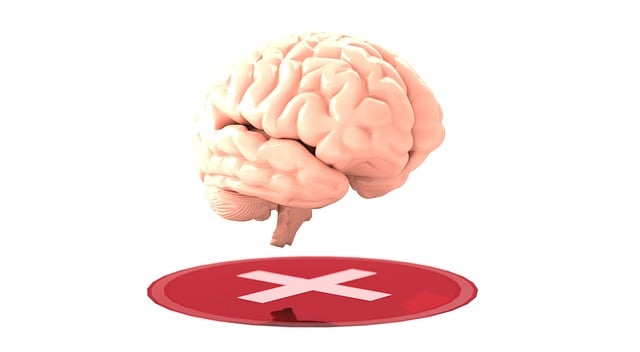Centennial Gender-Affirming Care Therapy (CGACT) is a revolutionary mental health approach for transgender and non-binary individuals, focusing on cultural sensitivity, inclusivity, and affirming gender identity. Data analysis within CGACT involves various collection methods, requiring meticulous preparation and ethical considerations to ensure accuracy and privacy. Understanding gender trends in mental health data is crucial, as historical statistics show significant disparities between genders. Digital age techniques leverage datasets for personalized treatment plans, improving patient outcomes and empowering policymakers to create effective, inclusive mental health strategies.
Mental health data analysis has evolved, offering profound insights into our well-being. This article delves into the intricacies of understanding and interpreting mental health information, exploring its potential to transform patient care. We begin by examining the collection and preparation of valuable data, followed by a spotlight on Centennial Gender-Affirming Care Therapy—a pioneering approach. Subsequent sections analyze gender-based mental health trends and demonstrate how advanced data insights can enhance therapeutic strategies, ultimately improving patient outcomes.
- Understanding Mental Health Data: Collection and Preparation
- Centennial Gender-Affirming Care Therapy: A Unique Approach to Analysis
- Interpreting Trends: Gender and Mental Health Statistics
- Enhancing Patient Care through Advanced Data Insights
Understanding Mental Health Data: Collection and Preparation

Understanding Mental Health Data is a pivotal step in navigating the complex landscape of human psychology and well-being. Collection involves various methods such as patient self-reporting, clinical assessments, and observational notes from therapists. These data points are diverse and multifaceted, requiring careful preparation to ensure consistency and accuracy. Normalizing and categorizing this information is essential for meaningful interpretation.
When preparing mental health data, especially within the context of Centennial Gender-Affirming Care Therapy, professionals must consider ethical guidelines and risk management planning. This involves anonymizing patient details, ensuring informed consent, and adhering to legal requirements. Self-awareness exercises and coping skills development among therapists are also crucial for managing potential biases and maintaining a supportive environment for data analysis, ultimately enhancing the accuracy of interpretation.
Centennial Gender-Affirming Care Therapy: A Unique Approach to Analysis

Centennial Gender-Affirming Care Therapy represents a groundbreaking approach in mental health data analysis and interpretation, particularly for individuals identifying as transgender or non-binary. This unique model goes beyond traditional therapy by prioritizing cultural sensitivity in mental healthcare practice. By acknowledging and understanding the specific challenges faced by these communities, therapists can tailor their approaches to create safer, more inclusive spaces.
The therapy focuses on affirming gender identity as a crucial aspect of an individual’s overall well-being, integrating this into every session. This holistic view not only enhances mood management but also encourages clients to explore and embrace their authentic selves. Through innovative techniques and public awareness campaigns development, Centennial Gender-Affirming Care Therapy aims to destigmatize mental health issues within these communities while fostering a sense of belonging and empowerment.
Interpreting Trends: Gender and Mental Health Statistics

In the realm of mental health data analysis, one significant aspect involves interpreting trends related to gender and its impact on overall well-being. Historical statistics often reveal striking disparities in mental health diagnoses and treatment-seeking behaviors between genders. This has prompted a growing focus on Centennial Gender-Affirming Care Therapy as a progressive approach to addressing these issues. By examining trends, researchers can uncover critical insights into the unique challenges faced by different genders, such as higher rates of anxiety and depression among women and distinct patterns in substance abuse among men.
Leveraging data from various sources, including national surveys and clinical settings, mental health professionals are equipping themselves with tools like Self-Awareness Exercises and Mental Wellness Coaching Programs Development to foster self-esteem improvement and overall resilience. These initiatives aim to bridge the gap by promoting gender-specific support networks and tailoring interventions to meet the diverse needs of individuals. Such efforts not only enhance access to care but also contribute to the creation of inclusive environments that encourage open conversations about mental health, ultimately paving the way for more effective Self-Esteem Improvement strategies.
Enhancing Patient Care through Advanced Data Insights

In today’s digital era, advancing mental health care relies heavily on sophisticated data analysis techniques. By delving into vast datasets, healthcare professionals can uncover valuable insights that drive significant improvements in patient outcomes. For instance, Centennial Gender-Affirming Care Therapy has revolutionized support for individuals undergoing gender transition, leveraging data to tailor therapeutic approaches and enhance self-esteem improvement. This personalized approach ensures that each patient receives care that resonates with their unique journey, fostering a deeper sense of self-awareness exercises and overall well-being.
Mental health policy analysis and advocacy also benefit from these advanced data insights. By scrutinizing trends and patterns within the population, policymakers can design more effective strategies to address mental health challenges. This proactive approach not only ensures better access to essential services but also promotes initiatives that target specific demographics, such as adolescents or older adults, contributing to a more holistic and inclusive mental health ecosystem.
Mental health data analysis has evolved, with Centennial Gender-Affirming Care Therapy emerging as a powerful tool. By interpreting trends in gender and mental health statistics, healthcare professionals can enhance patient care. This unique approach allows for more personalized treatment, ensuring that individuals receive the support they need to navigate their mental health journeys effectively. Advanced data insights enable us to recognize patterns, improve outcomes, and ultimately foster better mental well-being across diverse populations.








